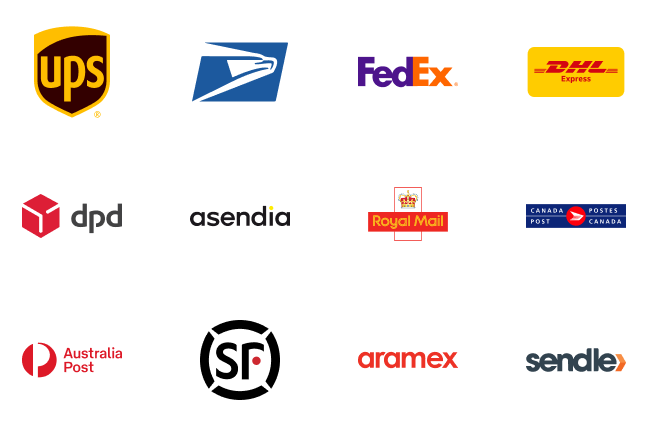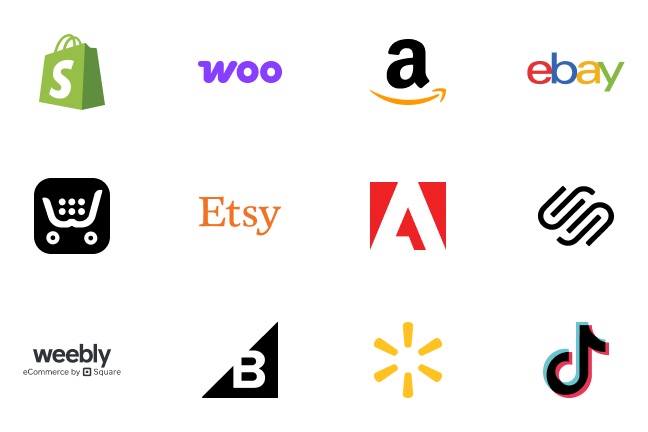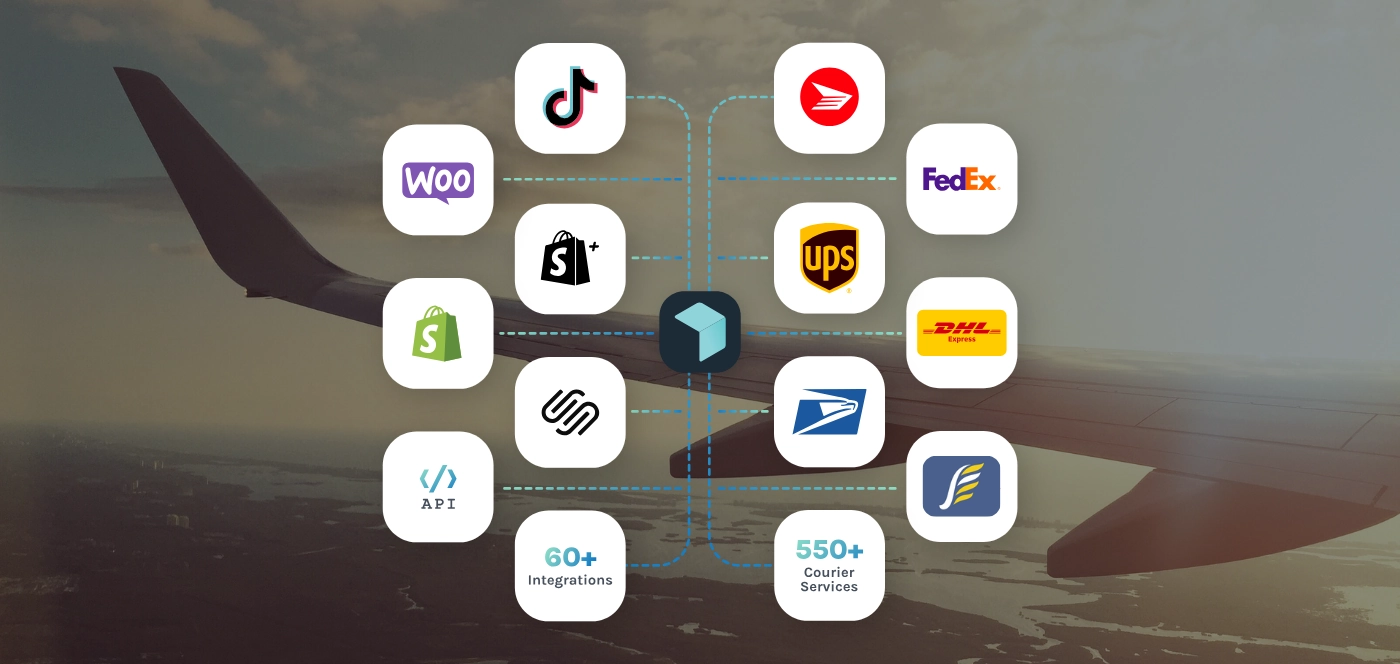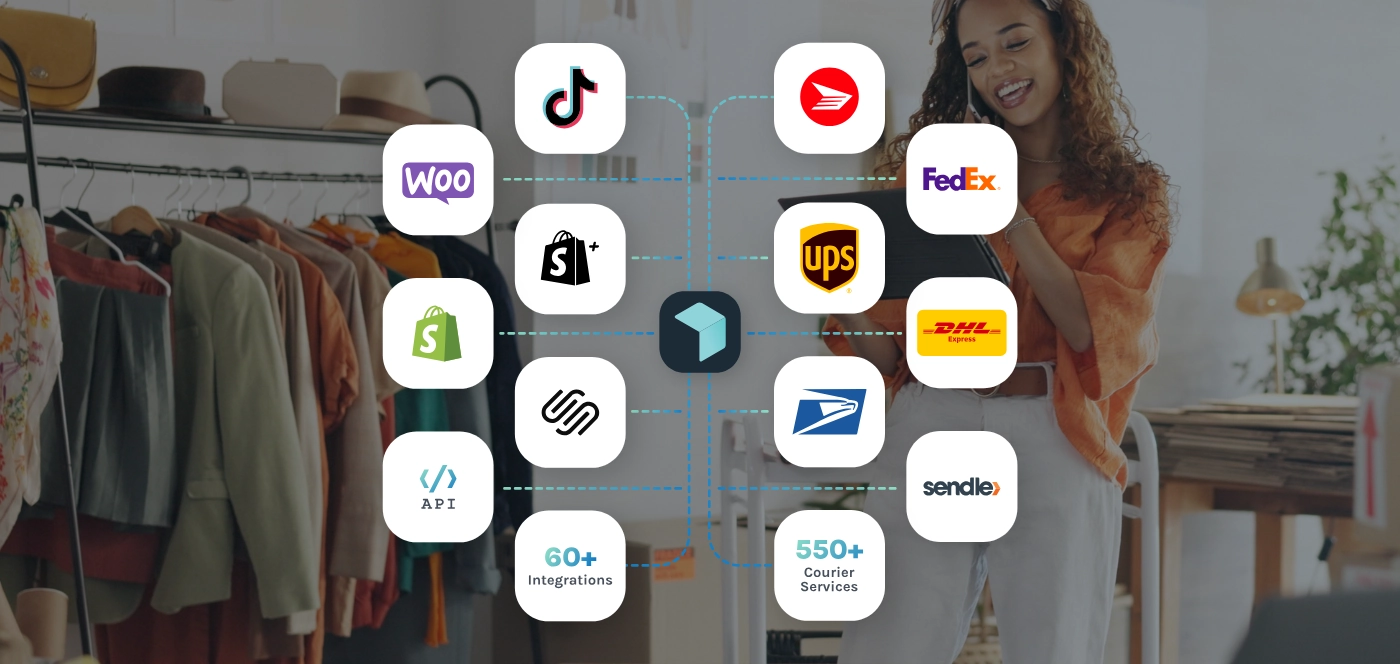Alibaba and Aliexpress are to Asia what Amazon is to the USA and Europe. These eCommerce platforms are keeping the big boys like eBay and Etsy on their toes in Asia. If you’re part of the eCommerce industry or an occasional online shopper, you will certainly have heard of these companies.
Before we get into Alibaba vs Aliexpress, you should first know that both these platforms are owned by the same company, China’s massive Alibaba Group. As one of the largest eCommerce brands in the world, the Alibaba Group controls what is perhaps the largest online wholesale and retail markets in the world. Plus, in the Chinese eCommerce market, the Alibaba Group by leaps and bounds the largest gameplayer, owning a 58.2% market share of all e-retail sales in China.
Are Alibaba and AliExpress the Same?
To put it in easy-to-understand terms, Alibaba and AliExpress are like a pair of siblings. They share the same parents, but have their own personalities and identities. While Alibaba and AliExpress are owned by the same company, each has a different purpose, operates differently, and is designed for a different audience. Specifically, Alibaba operates on a B2B model while AliExpress works on a B2C model.
Who Owns Alibaba and AliExpress?
Both Alibaba and AliExpress are owned by the Alibaba Group, which is headquartered in Hangzhou, China. It was founded by the (now former) Chief Executive, Ma Yun, better known as Jack Ma. Ma famously applied to (and was rejected by) Harvard University 10 times and worked a plethora of different jobs before finally finding his calling as the founder of Alibaba.
What is Alibaba?
Alibaba is a B2B platform that allows businesses to make wholesale purchases from manufacturers and suppliers across Asia, especially in China. The cheap labor in China and Asia make manufacturing a huge industry there, and growing companies are able to protect their bottom line by getting affordable suppliers through Alibaba. In addition, the wide variety of items available on the platform means there’s hardly anything you can’t find, from manufactured goods to custom products and machinery parts. Further, the platform’s user-friendly design makes it a go-to place for businesses looking for suppliers.
Alibaba.com also has a few tricks that allow it to cater to different businesses and regions and reach a wider customer base. You can order items in bulk, get customized printing on your products, and each vendor sets their own minimum order numbers. And yes, you can even bargain or negotiate on the price. Additionally, the platform offers a variety of payment methods so businesses can always find a convenient way to pay for their orders.
{{ discover-your-cheapest-way-to-ship }}
How to Use Alibaba
- Go to www.alibaba.com.
- If you don’t have an account, visit the signup page and follow the instructions there. Alibaba doesn’t require your business license to open an account - but, your local authorities may need you to fulfill some legal requirements to sell products sourced from Alibaba. Make sure you’re aware of these and can meet them.
- Once you’ve setup your account, look for the products you need using the search bar on the main page. It’s important to filter your search because generic search terms can get you unlimited results - far too many to sort through.
- Alibaba allows you to post a request for quotations. With this, you can essentially advertise what you’re looking for and let suppliers come to you - that means your search becomes a lot easier. All you have to do is draft a post that lists all your requirements, your preferred payment method, and the shipping destinations. Once you begin receiving quotes from different suppliers, you can compare them and pick the one that suits you best.
- Once you find a supplier that you think meets your demands, be sure to go to their profile page and check for the verification badge. This will allow you to confirm their legitimacy. Plus, you can read the reviews left by other buyers to see if you really want to work with this supplier.
- Try to look for a supplier that has a warehouse in your country. This will allow you to save on shipping costs and eliminate the headache of customs clearing.
- Once you’ve made a decision, you can negotiate the price with your chosen supplier to find a price that suits both of you.
- Finally, once everything is settled, you can make payment with one of the many options available on Alibaba and begin receiving your products.
What is AliExpress?
AliExpress is a B2C platform that’s ideal for consumers looking for a variety of similar products at affordable rates. Its user-friendly navigation and easy shipping and payment processes have made AliExpress the second-most popular eCommerce platform in the world. While most sellers here are from China and Asia, you will still find sellers from other regions. The marketplace is huge, with a large number of items and vendors listed - plus, there’s no minimum order requirement.
How does AliExpress Work?
- To use AliExpress, log into the website or download the app.
- Create a free account.
- Search for the product(s) you want.
- The results will be displayed, along with the seller info and reviews and ratings of the products and sellers.
- Read all the information about the product in detail before adding it to your cart. All the options for sizes and colors are given in detail. In the case of electronic equipment, the model number and specification is also mentioned. Don’t forget to read the review about the product and seller before selecting them.
- You’ll also find all the shipping information here. Free shipping is always specifically mentioned; otherwise, you’ll find the required shipping costs.
- Once you’ve added the item to your cart, head to the checkout.
- Fill out all the necessary details, including your name and shipping address.
- Select the payment method and complete your transaction.
- Once your order is confirmed, you’ll be able to track your order by entering the tracking number given to you by email.
- After receiving your order, go back to rate the product and seller.
The Difference Between Alibaba and AliExpress
Although both platforms are for online shopping, there are many differences in their respective purposes and how they work. Here are a few fundamental differences between the two eCommerce giants:
- Alibaba is a B2B platform while AliExpress is a B2C platform. This is the basic difference between the two platforms. One is meant for wholesale transactions between businesses; the other is for ordinary consumers.
- Alibaba generally requires large orders and has a minimum order quantity, whereas AliExpress has no minimum order.
- On Alibaba, you must ask for a quotation from the supplier according to your order requirements; on AliExpress, you can simply purchase your product like you would on any other eCommerce platform.
- On Alibaba, you can get customized products with your own branded labels; this is not possible on AliExpress.
- AliExpress sells manufactured products, which is why shipping doesn’t usually take too long. On the other hand, Alibaba sellers have to manufacture the products for each order, which is why shipping takes a longer time.
- Prices mentioned on AliExpress are fixed; on Alibaba, however, you can negotiate an appropriate price for your order.
- AliExpress offers dropshipping, but Alibaba doesn’t.
Alibaba and AliExpress: The Similarities
While these platforms are based on different business models and have fundamental differences, they also have many similarities. Between them, they make up the most effective eCommerce conglomerate in the world.
- Both platforms are owned by the Alibaba Group.
- You can find quality products at affordable rates on both platforms.
- Alibaba and AliExpress both offer a variety of payment methods, including bank transfers, credit cards, and, of course, AliPay.
- The two platforms have user-friendly interfaces and the whole buying process is very easy to navigate.
- Both platforms offer buyer protection services for payments made directly on them.
Alibaba Vs AliExpress: Which Should You Pick?
Now that we have discussed both platforms in detail, it is easy to decide which platform is the one for you.
Order Quantities
Alibaba is for manufacturers and resellers - in short for trade between businesses. That’s why you can’t just buy single items, only large orders with minimum quantities. AliExpress has no such limitation. It’s an online retail platform made for selling consumer goods. So, yes, you can buy single items on AliExpress. If you’re not looking to bulk order, then AliExpress should be your choice - though tt also caters to small businesses that only need small orders. If you’re a business trying to make wholesale orders, you’ll want to use Alibaba.
Pricing
Prices on AliExpress are fixed, so there is no room for negotiation. It’s like buying something in a normal store. The prices may be slightly higher compared to Alibaba, simply because Alibaba offers wholesale rates while AliExpress has retail rates. However, prices on Alibaba are negotiable, since they’re meant for wholesale buying. You can request quotes from various sellers to find a price that suits your needs.
Shipping
Because most orders are manufactured or customized, Alibaba takes a longer time to ship products. Conversely, AliExpress sells items that have already been manufactured to be shipped immediately. Additionally, shipping costs on AliExpress are fixed; on Alibaba, you will negotiate shipping rates with your supplier since you will be dealing with customs and taxes.
Dropshipping
AliExpress supports dropshipping as it is a retail platform. Alibaba is for wholesalers and distributors, which is why it does not offer dropshipping.
Customized products and private labels
If you want customized products or private labels for your company, then Alibaba is the right platform for you. These services aren’t available through AliExpress.
Reach More Customers with Alibaba and AliExpress
In the comparison of Alibaba vs AliExpress, the right platform comes down to exactly what you need. What type of purchasing are you planning to do? How much can you afford to spend? What shipping do you need? Because both platforms belong to the same company, they share certain features like low prices, easy payment methods, and buyer protection. Plus, both offer good customer support.
However, there are differences between the two. The main thing to note is that they have been designed for different audiences, so offer different standards of service. One operates in consumer retail, while the other is a wholesale platform. But now that you know the difference between Alibaba and AliExpress, you’ll be able to make an informed decision. Whichever platform you choose to conduct your eCommerce business, Easyship will be able to offer a shipping service that suits your needs.
Sign up for a free account now and see how we can help you!
Alibaba vs. AliExpress FAQ
How reliable is Alibaba or AliExpress?
Both platforms are generally reliable and customers can expect to receive their goods. However, as with any service, there are cases of fraud and some scams to look out for, so caution is always advised.
How do you determine if an Alibaba or Aliexpress supplier is legitimate?
There are no foolproof ways for making sure a supplier is legitimate. You need to thoroughly research them and determine what amount of risk you want to take. And then find ways to protect yourself and your business. Both services offer guidance and support for resolving issues with suppliers.
Which site is cheaper than Alibaba or AliExpress?
AliExpress is going to be cheaper for the most part because it's consumer-based and you can purchase individual items. Alibaba is a service for finding a supplier where you can buy in bulk.















































.svg)
.svg)






.avif)
.avif)

.avif)
.avif)


.avif)


.avif)










.avif)
.avif)



.avif)
.avif)


.avif)
.avif)


.avif)



.webp)






.svg)





